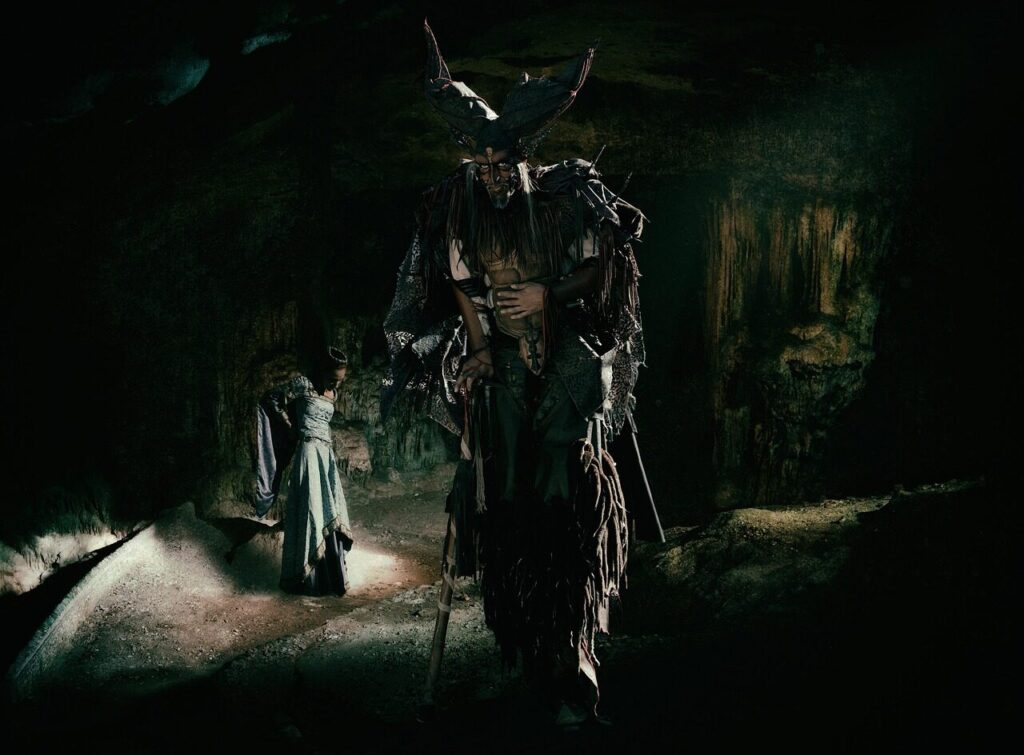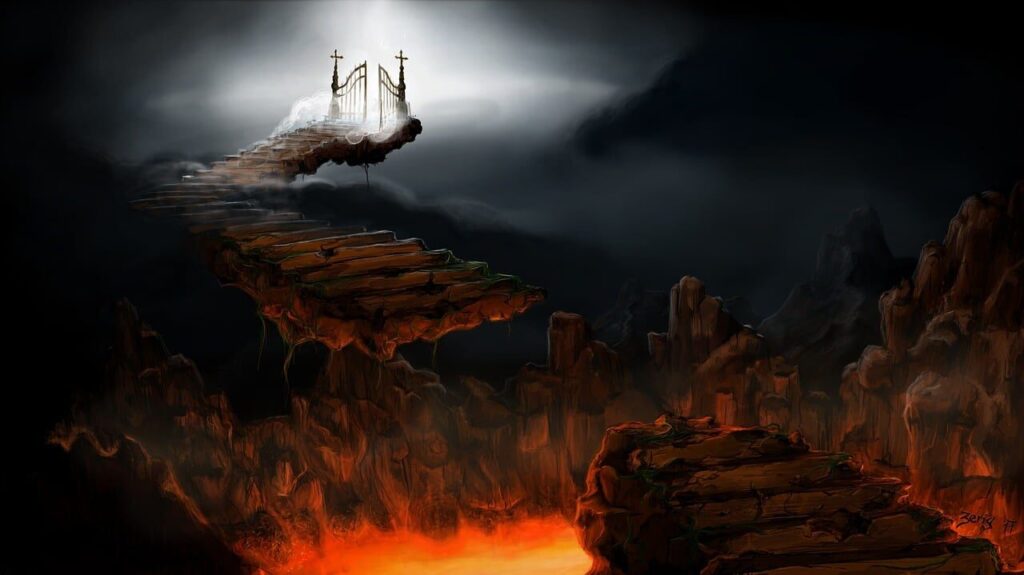Heaven and hell have captured human imagination for centuries, shaping how people view morality, life after death, and divine justice. Yet, much of what we think we know about these realms often comes from movies, art, and popular stories rather than actual theological or cultural understanding. This has led to widespread misconceptions that blur the deeper meanings these ideas are meant to convey. Understanding heaven and hell more thoughtfully allows us to explore hope, redemption, and accountability with greater depth. Here, we’ll uncover ten common misconceptions about heaven and hell and clarify what each truly means in a broader spiritual and historical sense.
1. Heaven Is Just Endless Cloud Watching

Many imagine heaven as an eternal scene of people lounging on clouds, singing hymns, and playing harps. However, most religious traditions describe heaven as far more dynamic, a place filled with purpose, joy, and meaningful relationships. Rather than being static or dull, heaven is portrayed as the ultimate fulfillment of one’s soul, where learning, creating, and loving continue in perfect harmony. It is not about escaping reality but about experiencing it in its purest, most complete form. Heaven symbolizes eternal growth, peace, and connection rather than endless inactivity or detachment.
2. Satan Rules Over Hell

Pop culture often portrays Satan as the ruler of hell, complete with horns, a pitchfork, and legions of demons. In many religious teachings, however, hell is not Satan’s kingdom but his punishment. The concept of hell represents separation from goodness and divine light, not a place where evil reigns freely. Depicting Satan as its master can distort the idea of divine justice. Instead, most interpretations see hell as the consequence of rebellion against goodness itself, emphasizing accountability rather than glorifying darkness or giving it dominion over human souls.
3. Everyone Will Eventually Go to Heaven

The comforting idea that everyone ultimately ends up in heaven regardless of their choices is known as universalism. While it emphasizes mercy and forgiveness, many faiths caution that it oversimplifies moral responsibility. In most religious contexts, entering heaven involves not only divine grace but also the willingness to embrace it. The concept of judgment exists to underscore free will and the meaningfulness of human decisions. Believing that every outcome leads to heaven may diminish the moral balance that heaven and hell represent, a harmony between mercy and justice.
4. Hell Means Complete Destruction

Some people believe that those who end up in hell simply cease to exist, their souls annihilated completely. While the idea of eternal destruction appears in various interpretations, many religious traditions describe hell as a conscious awareness of separation from what is good and divine. Rather than erasing existence, hell symbolizes a state of deep disconnection from light and purpose. It is not merely a physical place of fire but a moral and spiritual metaphor for lost direction. This interpretation encourages self-reflection and a desire to seek reconciliation and wholeness.
5. People Lose Their Identity in Heaven

Another misconception is that people in heaven lose their individuality, becoming formless spirits without personal memories or emotions. Yet, many spiritual perspectives suggest that personal identity is not erased but perfected. People remain who they are, only free from pain, conflict, and imperfection. Relationships, love, and memories may continue in their most authentic and healed form. Heaven represents the fulfillment of one’s true self rather than its disappearance. It is about discovering the essence of identity, fully known, fully loved, and fully at peace within a greater harmony.
6. Good Deeds Alone Guarantee Heaven

The belief that heaven is earned solely through good actions is widespread but incomplete. While good deeds are important, many faiths teach that inner transformation, faith, and compassion play vital roles. Heaven is not viewed as a reward checklist but as the outcome of a life lived in harmony with divine love and purpose. This understanding highlights that goodness must come from sincerity and humility, not self-interest. It is not about perfection but about a genuine desire to grow, forgive, and act out of love rather than obligation or fear.
7. Hell Is Temporary and Everyone Moves On

The notion that hell is only a temporary stop on the way to heaven offers comfort but oversimplifies many religious teachings. In traditional theology, hell is described as a lasting separation from divine goodness, emphasizing the seriousness of moral choice. However, it is not always depicted as cruel or vengeful; it reflects the respect for free will and the reality of consequences. The idea invites reflection on how our actions shape our spiritual path. Rather than being a temporary phase, hell represents the permanence of choices unaligned with goodness.
8. Hell Is the Complete Absence of God

Many assume that hell is a place completely devoid of God’s presence. However, in several theological perspectives, even hell exists under divine sovereignty. The difference lies in the experience of that presence. Whereas heaven feels God’s love and peace, hell feels His justice and truth. It is not that God abandons souls in hell; rather, they are unable to receive His goodness because of spiritual separation. This perspective deepens the idea of accountability while maintaining that divine order permeates all existence, even those distant from grace.
9. We Forget Everything from Earth in Heaven

Some think that entering heaven means losing all earthly memories, as if everything from life simply fades away. But many religious and philosophical interpretations suggest that our experiences remain part of who we are, redeemed, healed, and understood in a new light. Remembering allows gratitude and recognition of how love and growth shaped our journey. Heaven does not erase our story; it fulfills it. Every challenge, joy, and connection becomes part of a greater purpose, showing that even the smallest moments of earthly life hold eternal meaning.
10. Heaven and Hell Exist Only in a Distant Realm

It is common to imagine heaven and hell as faraway places beyond the stars. Yet, many spiritual thinkers describe them as states of being that can begin even in this life. Heaven is experienced through acts of love, peace, and joy, while hell manifests in bitterness, hatred, or despair. This does not dismiss their existence beyond life but emphasizes that the choices we make now shape our spiritual direction. By understanding heaven and hell as reflections of the soul’s condition, we gain insight into how daily life connects with eternity.
Comments